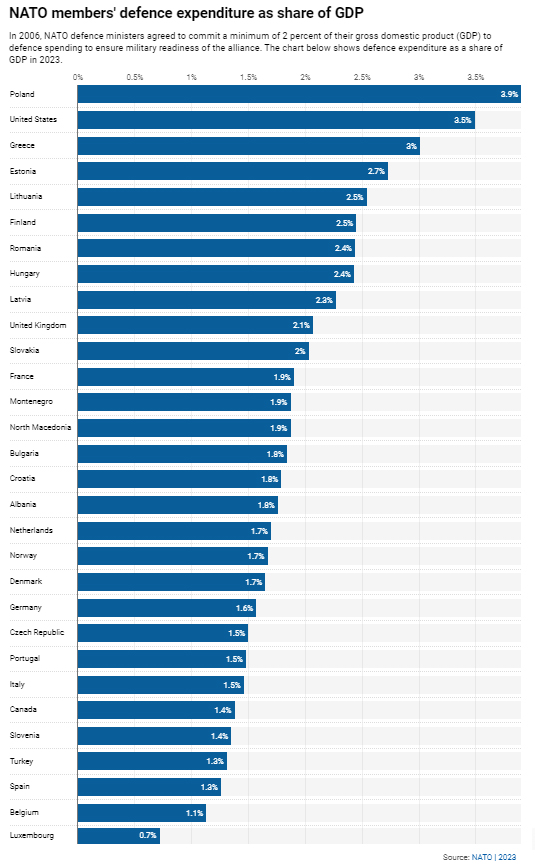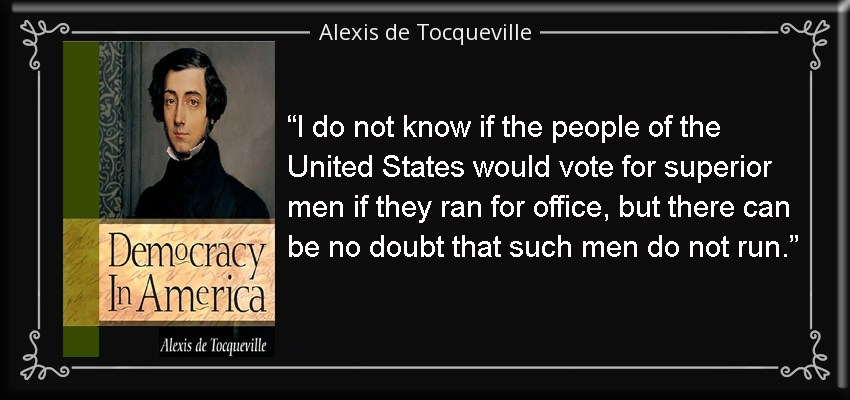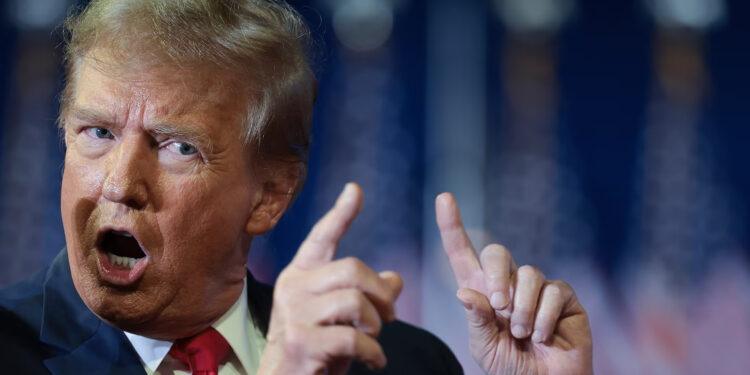by Miceál O’Hurley
WASHINGTON, D.C. — Former U.S. President and likely Republican Nominee for the Presidency Donald Trump demonstrated his flair for making outrageous comments that engenders fear and loathing in U.S. allies yet again. At a campaign rally in North Carolina Saturday Trump recounted a supposed encounter between himself and another NATO member country’s President. According to Trump, that President asked would the U.S. stand by them in their defense if they “don’t pay” their full 2% of GDP spending commitments as a NATO member. Trump brazenly boasted he would “encourage” Russia to attack them, “No, I would not protect you. In fact, I would encourage them to do whatever the hell they want. You got to pay. You got to pay your bills”.

It was not lost on anyone that Trump often claimed he had more admiration for Russia’s Vladimir Putin than he held for any other world leader. At one point, in a showdown with his own Joint Chiefs of Staff at the Pentagon and the CIA, FBI and other intelligence agencies, Trump claimed he found the FSB (Russia’s successor to the KGB) more credible than his own intelligence community. Trump’s lecturing of NATO leaders saying “You got to pay your bills”, seems ironic coming from a man that promised, tried then failed to get Mexico to pay for his much touted ‘Border Wall’. As President, Trump, known as the ‘King of Debt‘ presided over an additional $7.8 trillion treasury deficit in only 4-years in office.
Privately, Trump is notorious for his businesses claiming bankruptcy protection 6-times and currently owing billions to banks, attorneys and legal judgments. Trump was accused of using un-documented Polish workers to demolish a building on a site upon which he built Trump Tower. When the Polish workers were not paid they claimed, in scores of sworn affidavits in a case that eventually settled, Trump threatened to “tip off” U.S. Immigration authorities and have them deported if they tried to collect their wages. The ironies of Trump’s comments about paying bills is astounding.
Alarmingly for Europe, Trump’s comments and invitation to Russia to attack NATO allies were made to great applause from his ‘Make America Great Again’ Republican party rally attendees. Trump currently leads incumbent U.S. President Joe Biden in the latest election polls.
NATO leadership and European capitals immediately voiced alarm that the presumptive next President of the United States of America would reject the U.S. commitment to collective defense of other NATO members as enshrined in Article 5. of the NATO treaty. NATO Secretary-General Jens Stoltenberg forcefully asserted that the 31 allies of the NATO treaty remained committed to defending each other. “NATO remains ready and able to defend all allies. Any attack on NATO will be met with a united and forceful response. Any suggestion that allies will not defend each other undermines all of our security, including that of the U.S., and puts American and European soldiers at increased risk,” Stoltenberg said. Charles Michel, President of the European Council called Trump’s comments, “reckless” and would “serve only Putin’s interest”.
Tragically for the U.S., for European and world leaders Trump’s comments might have been unexpected but they were far from surprising. What would once have been unimaginable – a NATO leader encouraging Russia to attack other NATO members – has become standard fare amongst irresponsible leaders like America’s Trump, Hungary’s Viktor Orban and Slovakia’s Robert Fico. Trump served a single term as U.S. President between 2016-2020. While in office he did not withdraw the U.S. from NATO despite repeatedly threatening to do so. Playing to his populist base in this election year Trump has hinted that if he elected President again the U.S.’s future role in NATO is dubious. European leaders do not trust Trump and view him as a danger to their collective security.
Trust for America as a partner on the world stage is at its lowest level ever. A German Marshall Fund survey, Transatlantic Trends 2023, indicated Europeans have scant faith in America’s future influence on the world stage. A median of only 35% of the population of EU countries think the U.S. will be the most influential global actor in 5-years time. Biden’s mishandling of the crisis in Gaza and Trump’s threats to eviscerate NATO seem intent on speeding along America’s decline in stature of a global leader by engendering fear and loathing in their once solid European allies.

Following the U.S. betraying their commitments in Iraq and Afghanistan, America’s prestige on the world stage has fallen precipitously. Biden’s promise to stand-by Ukraine “… until victory – as long as it takes” was rendered useless when he failed to secure appropriations to assist Ukraine with defense and security funding at this critical time in their fight to free their homeland from Russian invaders. Biden no longer says “…as long as it takes” but has actually adopted the phrase “…as long as we can” with regard to U.S. support for Ukraine. Having developed a military strategy and battlefield planned based upon what they were promised were enduring U.S. commitments Ukraine has been rendered vulnerable and their victory seems uncertain. The world is yet again witnessing how U.S. commitments abroad are undermined by America’s increasingly dysfunctional domestic politics. Consequently, the U.S. can no longer be counted upon as an international leader and its role as a reliable partner is suspect.
With apex political leaders the likes of the highly unstable Trump, or the aging Biden who shows signs of increasing forgetfulness, confusion and frailty, Europe is increasingly turning inward for reliance. The current deficit of trustworthy, reliable, intelligent and capable American political leadership gives voice to the observation of Alexis de Tocqueville who, in Democracy in America, his 19th century study of Americans and politics, observed:
“I do not know if the people of the United States would vote for superior men if they ran for office, but there can be no doubt that such men do not run.”
 The days of American greatness seem a distant memory. In an age where lesser men rise to high office only to put their personal and party political interests before the public good America appears unable to chart a better course. America’s post-World War II leaders, although divided by political parties were stolidly patriotic and able, more often-than-not, to put their country and the world before their petty interests. Today’s leaders never shared in a unifying effort where their personal contribution was directed for the national and international good as were previous generations. They have been nurtured on an ethic based in individualism and clannism that breeds individualism and isolationism. Until this dynamic changes and Americans realise that being a good patriot is not incompatible with being a good member of the world community U.S. influence in the world will only continue in its speedy decline.
The days of American greatness seem a distant memory. In an age where lesser men rise to high office only to put their personal and party political interests before the public good America appears unable to chart a better course. America’s post-World War II leaders, although divided by political parties were stolidly patriotic and able, more often-than-not, to put their country and the world before their petty interests. Today’s leaders never shared in a unifying effort where their personal contribution was directed for the national and international good as were previous generations. They have been nurtured on an ethic based in individualism and clannism that breeds individualism and isolationism. Until this dynamic changes and Americans realise that being a good patriot is not incompatible with being a good member of the world community U.S. influence in the world will only continue in its speedy decline.
With each day that passes it becomes increasingly clear than America must embrace more talented women and men to serve their country out of a sense of patriotism and public service. Without this the U.S. role as a dominant superpower will subject the world to the changeable whims of America’s wild, domestic political maelstrom. \
Meanwhile, the midnight oil is burning in the lamps of NATO, European and international allies who are preparing contingency plans for dealing with the increasing probability that Trump will return to office and reduce world politics to the same circus sideshow he has crafted in the American political arena.
















































